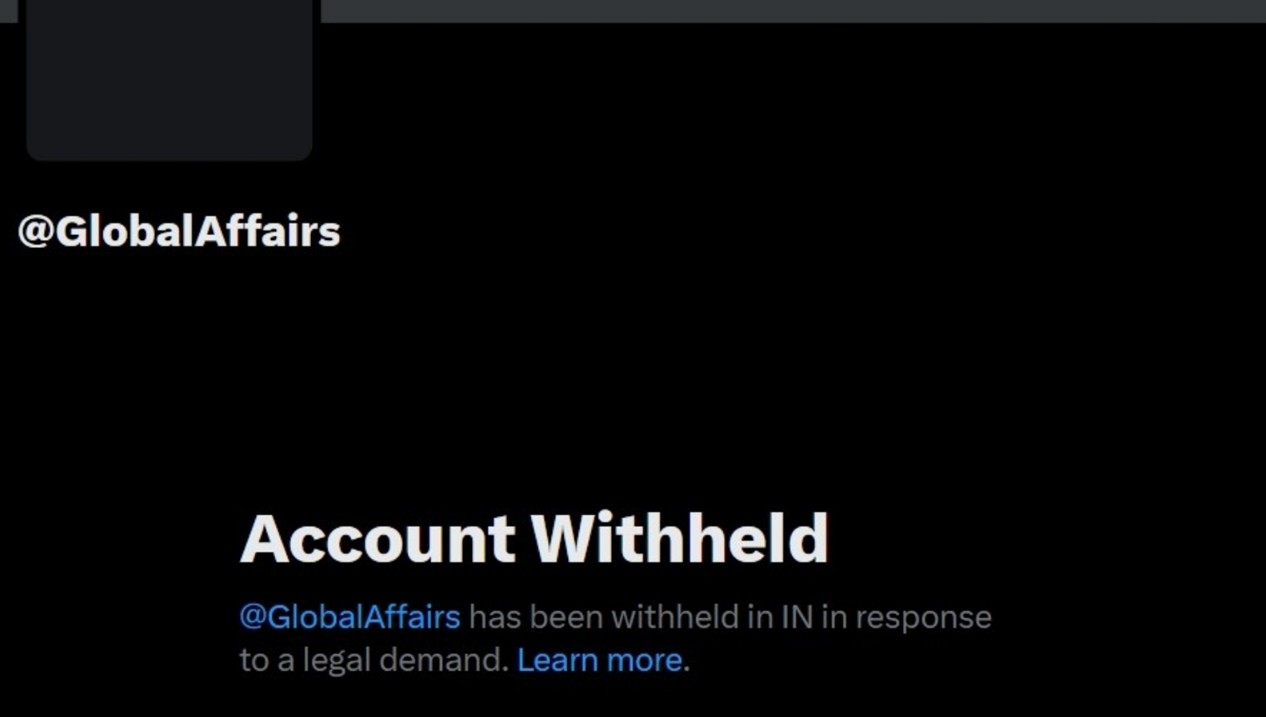INTRODUCTION
ACCOUNT WITHHELD! This is a situation wherein an account, in response to a legal demand, is blocked in some region of the globe. After recently commenced Operation Sindoor, the Indian Government has ordered X (formerly known as twitter) to block around 8000 accounts. Although, the order has been complied to, by X servers and administration, X has not wholly supported this step as it goes against freedom of speech and expression.
This article studies the reason behind such an order and its impact on legal principles like freedom of speech and expression. It also studies certain other examples which are related to blocking or banning accounts on various certain platforms.
THE ORDER
X, formerly known as twitter, is a microblogging platform company, run by Elon Musk. This platform is not only used by citizens, but also officials, ministries, political parties, organisations, companies, markets etc.
The executive orders received by X, from the Indian government is to block access of international platforms like news channels, celebrities, ministries, or bodies, in India, post commencement of Operation Sindoor. X has begun with the process but protests against such demands of the Indian Government.
THE CONTRADICTION
Such an order is difficult to follow because this order attracts contradiction to certain rights like right to information, right to carry out any trade or business, right to freedom of speech and expression etc. The company has suggested those users who are getting affected by this order, to act and approach courts for legal remedies.
The information of such an order, and compliance to the order, was released by X’s Global Government Affairs. They also said that there is no specific reason for which they are passing such orders. Which local laws are violated by which kind of posts are not clearly stated.
The principle of transparency gets lost when such an order is executed. When people will not be able to get information about what is going around, in the world, in relation to challenges and tensions on international borders.
LEGAL LANDSCAPE
INTERNET CENSORSHIP
When it comes to Internet Censorship, the Information Technology Act 2000 comes into play. Government’s action is justified based on Section 69A of IT Act 2000. The Information Technology Act (IT Act), 2000, Section 69A, gives the Indian government or its designated officials the authority to restrict internet access to information in certain situations. The government may use this power if it believes it is essential for maintaining public order, defence, security, good relations with other nations, India’s sovereignty and integrity, or preventing incitement to violence. Reasoning is a must for blocking access.
This section was also upheld in Shreya Singhal v Union of India.
LEGAL PRECEDENT
In a legal tussle between Twitter and Indian Government in 2022, which went to the Karnataka High Court, the test of universality and proportionality was proposed for blocking access to accounts on twitter. If we apply this test here, the test of proportionality fails as blocking access cannot be sufficiently weighed to situations of war until the accounts are leading to war. Mere posting of an opinion does not lead to a war. Declaration of War and scrutiny of national security is anyways, done by the central government in India. In the scenario of emergency, a few rights may go away.
Right to freedom of speech and expression, as promised under Article 19 of Indian Constitution also imposes certain limitations which includes the ground of national security.
SUGGESTIONS AND CONCLUSION
After passing this information, the users can reach out to organisations like NALSA, Supreme Court Legal Services Authority, iProbono India etc. Certain rights and ethical principles get violated when it comes to banning accounts in India. There should be questioning on such an order. If the reason is national security, it should be clearly stated that what type of posts can violate ideas of national security. Blocking access to accounts of prominent users, without sufficient reason, can lead to financial losses as well as legal injuries.
Certain other examples include banning of accounts on Instagram and Facebook in India during such scenarios of military and political operations. Account of Hania Aamir was withheld on Instagram and Indians were not able to access her account after that.
ABOUT THE AUTHOR

ABOUT THE AUTHOR
SAHIL YADAV, a law student at NLIU Bhopal, is a dedicated and passionate legal writer, who is keen to explore International law, Constitutional Law, Criminal Law, Forensic Psychology and publish research papers and articles on contemporary legal nuances and issues. He is also interested in the intersection of disciplines like history, psychology, political science, philosophy, and sociology with law.


One thought on “GOVERNMENT’S ORDER TO BLOCK SEVERAL ACCOUNTS ON X AFTER OPERATION SINDOOR”